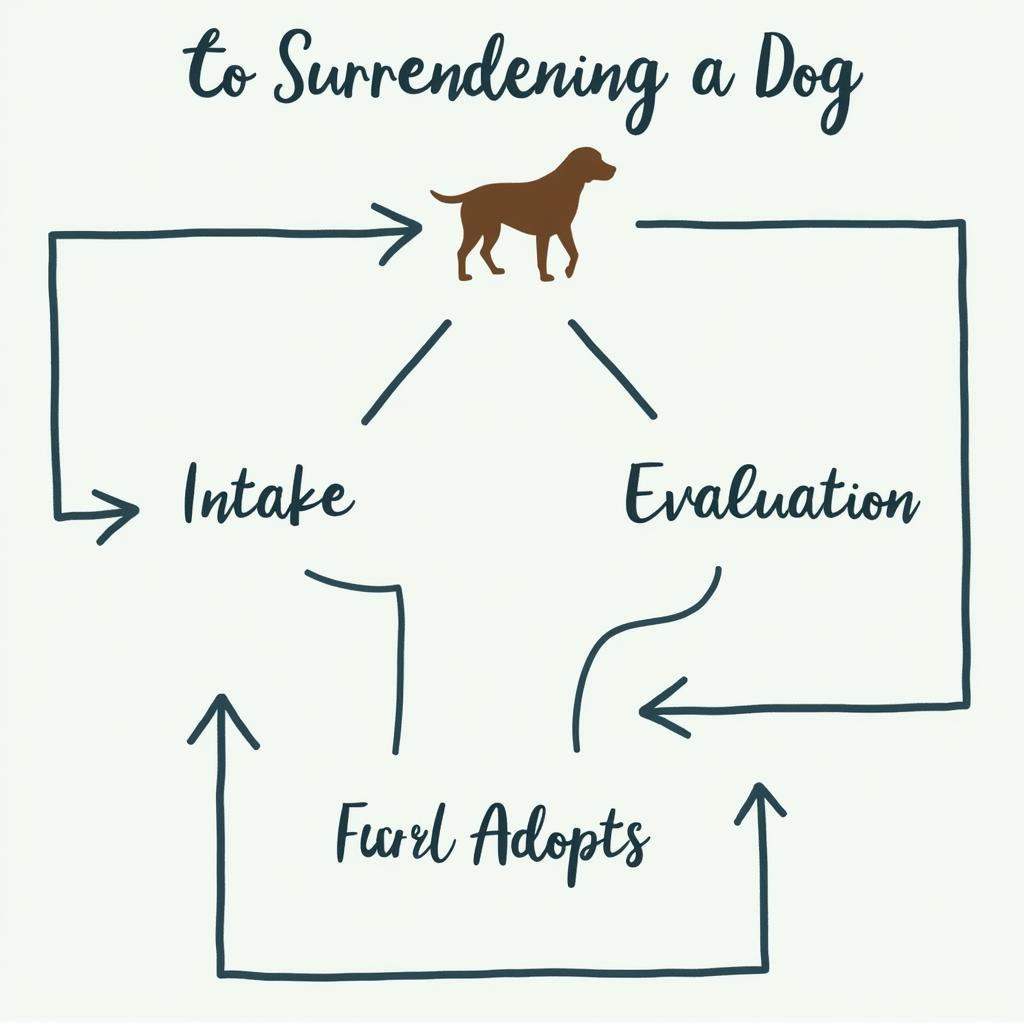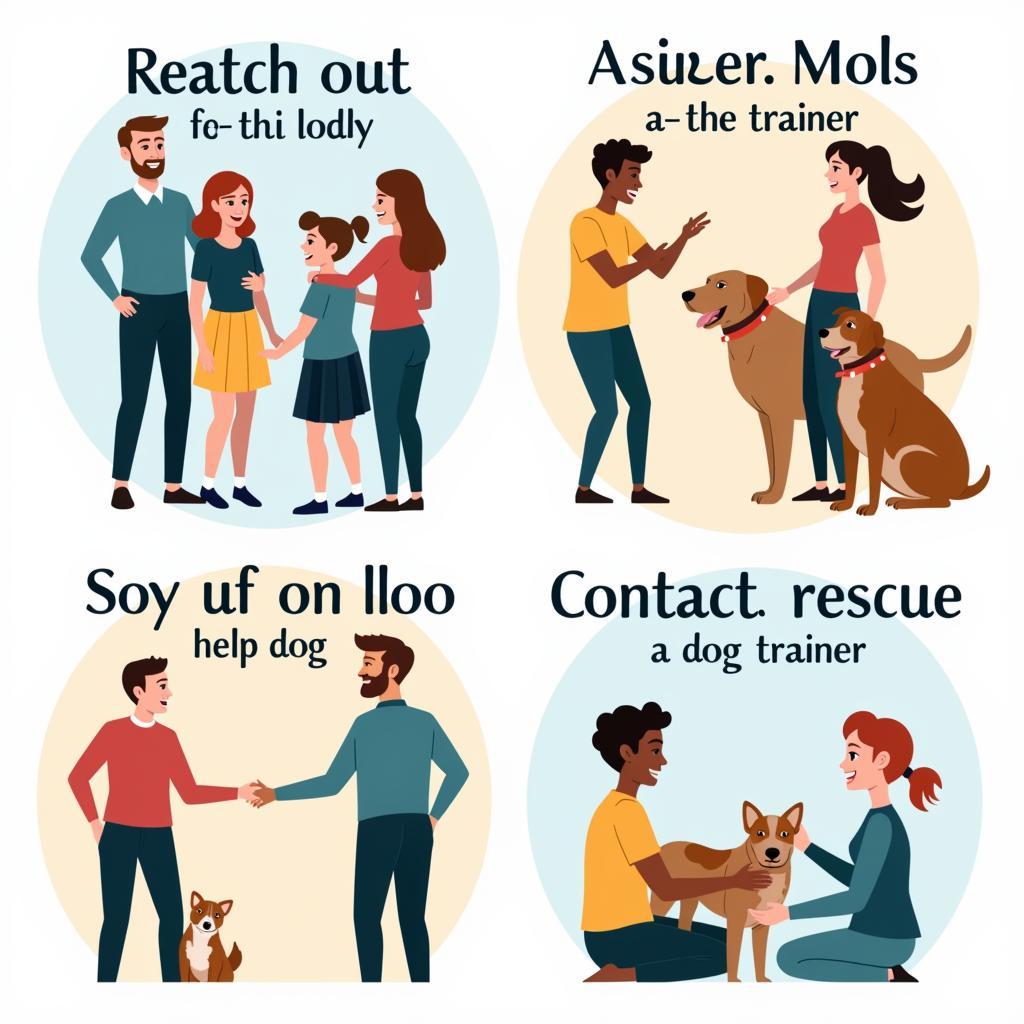Making the difficult decision to surrender your dog is never easy. It can be an emotional and complex process, often filled with feelings of guilt, sadness, and uncertainty. It’s important to remember that sometimes, despite our best intentions, surrendering a dog to a humane society in daytona is the most responsible and compassionate choice for both the dog and the owner. This comprehensive guide aims to provide clarity and support to those grappling with the question, “How to surrender a dog to a humane society?” We’ll navigate the process together, offering empathetic guidance and practical advice.
Understanding the Reasons for Surrender
Before delving into the “how,” it’s essential to acknowledge the “why.” People surrender their dogs to humane societies for a myriad of reasons, and none are inherently wrong. Life throws curveballs, circumstances change, and recognizing when you can no longer provide the care your dog deserves is a sign of responsibility. Some common reasons include:
- Financial Constraints: Veterinary care, food, and supplies can become costly.
- Changes in Living Situation: Moving to a new home that doesn’t allow pets or facing a downsize can impact your ability to care for your furry friend.
- Behavioral Issues: Dogs sometimes develop behavioral problems that require specialized training or management beyond an owner’s capacity.
- Allergies or Health Issues: New allergies in the family or the owner’s health deteriorating can necessitate finding a new home for a beloved pet.
 The Dog Surrender Process
The Dog Surrender Process
The Surrender Process: A Step-by-Step Guide
While procedures vary slightly across different humane societies, the general process remains relatively consistent. Here’s a breakdown to help you navigate each stage:
- Contact Your Local Humane Society: Start by reaching out to the humane societies in your vicinity. Some may have waiting lists, while others can accommodate surrenders more quickly. Be prepared to provide basic information about your dog, such as breed, age, and any medical or behavioral concerns.
- Complete the Surrender Application: Most humane societies require a formal surrender application to gather comprehensive information about the dog’s history, temperament, and any special needs. Answer all questions honestly and thoroughly to ensure the best possible outcome for your companion.
- Schedule an Appointment: Once your application is reviewed, the humane society will schedule a surrender appointment. During this appointment, you’ll have the chance to speak with a staff member, discuss your reasons for surrendering, and provide any relevant documentation, such as vaccination records.
- Prepare Your Dog: Gather your dog’s belongings, including their leash, collar, favorite toys, and any medications. It’s also helpful to write a brief, positive description of your dog’s personality and preferences to share with potential adopters.
- Saying Goodbye: The act of surrendering your dog can be emotionally charged. Allow yourself to feel your emotions and say goodbye in a loving and compassionate manner. Humane society staff are there to support you through this challenging moment.
Finding Alternatives to Surrender
Before making the final decision to surrender, explore potential alternatives. Sometimes, temporary assistance or support can help you keep your dog in your life:
- Reach Out to Family and Friends: Talk to trusted loved ones who might be willing to foster your dog temporarily or provide assistance with pet-related expenses.
- Contact Rescue Organizations: Breed-specific rescues often have networks of foster homes and resources to help dogs in need.
- Address Underlying Issues: If behavioral problems are a concern, seek guidance from a certified dog trainer or behaviorist. They can provide valuable insights and develop a training plan.
 Alternatives to Surrendering Your Dog
Alternatives to Surrendering Your Dog
Making the Best Decision for Your Furry Friend
“Surrendering a dog is not a failure; it’s an act of love when done for the right reasons,” says Dr. Emily Carter, a veterinarian with over 15 years of experience working with animal shelters. “It’s about prioritizing the dog’s well-being and ensuring they have the best chance at a happy and fulfilling life.”
Remember, surrendering your dog to a humane society should be a last resort, but it can be the kindest and most responsible option when circumstances make it impossible to provide the care they need and deserve.
FAQs About Surrendering a Dog to a Humane Society
1. Is there a fee to surrender a dog to a humane society?
Many humane societies request a surrender fee to help cover the costs associated with caring for the dog. However, fees can vary, and some organizations may waive or reduce the fee in certain situations.
2. What happens to dogs after they are surrendered?
After a dog is surrendered, they typically undergo a medical and behavioral evaluation. Once cleared, they are made available for adoption. Humane societies strive to find loving forever homes for all animals in their care.
3. Can I visit my dog after I surrender them?
Policies regarding visits vary. Some humane societies may allow visits, while others discourage them to minimize stress on the animals and facilitate the transition to a new home.
4. What if my dog has special needs?
Be upfront about any special needs your dog may have, including medical conditions, behavioral concerns, or specific dietary requirements. Reputable humane societies are equipped to handle a wide range of needs and will work to find suitable placements.
5. How can I support my local humane society?
Consider donating your time, money, or supplies. Volunteering, fostering, or making a financial contribution can significantly impact the lives of animals in need.
For further inquiries or to explore surrender options, contact your local humane society or visit their website.
Need support in navigating the process of surrendering a dog to a Riverbluff Humane Society?
Reach out to our compassionate team for guidance and resources:
Phone: 02043854663
Email: [email protected]
Address: Khu 34, Bắc Giang, 260000, Việt Nam
Our dedicated support staff is available 24/7 to assist you.